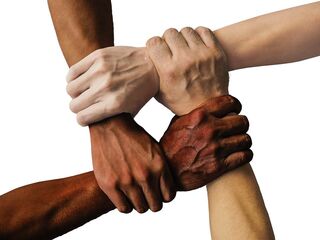Coaching
The Application of Critical Race Theory in Coaching
Part II: The institution of coaching through the CRT lens.
Posted July 1, 2021 Reviewed by Lybi Ma
Key points
- Critical Race Theory (CRT) is a hot topic on social media and in the news.
- Most people are unclear what CRT is and why it's opposed as a teaching tool by members in our government and society.
- Broadly, CRT is the study of race and identity within the construction of our social institutions.
- Because coaching is an institution, built and maintained by people, CRT can be used to investigate coaching techniques, standards, and ethics.

Part II in a series.
Albeit you and I may be credentialed, mature coaches, we are subject to our cultural programming and lived experiences. Furthermore, we all are exposed to institutions, concepts, ideologies, and dogma. This includes our education system, religion or faith-based beliefs, and upbringing. Therefore, we can surmise that our implicit biases are a product of our social identity, which has shaped our mindset. In turn, our mindset influences our behavior, thoughts, and feelings, emotions. Meaning, our worldview and how we engage people are shaped by our institutional exposure. Coaching is part of our social dynamic. Furthermore, both experiencing racism and not experiencing racism can be equally true depending on your lived experience.
When we partner with a coachee in a coaching session, we bring our whole being, past experiences, as well as biases (Bandura, 1969; Bandura, 1977; Cherry, 2017). Likewise, our client is doing the same. We don't leave our culture or institutional experiences outside of the session. While we are taught in our coach training to suspend our judgments and assumptions, it takes continual practice and awareness to remain a curious observer while being non-attached or nonjudgmental. We must remember that our biases tend to be automatic responses, which are learned and are institutionalized by our dominant social system. Furthermore, in coaching as an institution, CRT can serve to inform us of how social identity influences goal attainment, motivation, resilience, and our worldview based on how we are treated as individuals or group membership, or on how we identify. How we construct coaching standards and ethics, or how coaching is applied, is influenced by the institutions that teach us.
Within the institution of coaching, those who founded our current paradigms set the standards. If we examine the makeup of who dominates within the coaching institution we will find that the majority of leaders, coaches, and policymakers are white. As such, Eurocentrism is normalized into the institution. What happens when a coachee does not fit into this paradigm? In my view, the coachee becomes socially inhibited; even at the unconscious level, and their lived experiences can be suppressed by the coach and the coaching approach.
Take for example a case study presented in my coaching group. A coachee, who works in a male-dominated industry, had shared that she felt she was discriminated against at work because of her gender. The coach (credentialed and experienced) asked, "What else could it be" other than discrimination? Likewise, in a personal coaching experience, I shared with a Black coach that I felt I may not be taken as seriously as my white male counterparts on a high-visibility project; the coach said to me: "Maybe it's you or how you see things"
In both cases, there was no empathy or holding space for the coachee's experience. The questions and statements in these two cases implied that the coachee's perception of the experience may be self-imposed, false, or unreal. CRT can be used to examine how race plays a role in the way we view our clients, ask questions, and how coaching organizations create and enforce coaching ethics, policies, or standards.
Another CRT critique in coaching is that some institutions adhere to strict rules about how to apply coaching techniques without considering the impact the approach has on one's social identity. Meaning, if you are a coach then you should only ask questions and share observations in context to the client's responses to your question. We are discouraged from sharing deeper insight from the perspective of storytelling, advice-giving, lived experiences, or points of view, for example. While we are prohibited from giving advice and non-coaching approaches, there are some situations where the coachee needs guidance to understand how behavior works under specific conditions. When working with diverse coachees it is important to hold space for storytelling to sensitively leverage lived experiences as a tool to empower our coachee. Meaning, guidance, mentoring, or advice may not be coaching, but these tools are part of the coaching process and can better help diverse coachees if implemented with coaching. As such, the goal of CRT in coaching is to serve as a tool to critique the coaching institution. The outcome, then, is to ensure we are adhering to coaching standards and ethics that support diversity, equity, and inclusion (DEI).
In conclusion, CRT is a tool of study. It allows us to examine our institutions, including coaching, under the social construct of race and identity. It questions if our policies, laws, and institutions are fair to all members who participate in it or who are exposed to it. CRT allows us to identify how we measure, gaze, and respond to otherness in comparison to ourselves and our social order. CRT can magnify the gaps for which our biases and understanding of other people are construed or skewed. For coaching, we can use CRT to ensure we honor DEI and check or weigh our cultural intelligence to see where our cultural or social identity sensitivity may be lacking within the institution of coaching.
References
Bandura, A. (1969). Principles of behavior modification. Holt, Rinehart &Winston: New York, NY.
Bandura, A. (1977). Social learning theory. Prentice-Hall: Englewood Cliffs, NJ.
Cherry, K. (2017). What is social learning theory? A closer look at how people learn through observation. Retrieved from https://www.verywell.com/social-learning-theory-2795074
International Coaching Federation. (2021). ICF Code of Ethics. Retrieved from https://coachingfederation.org/ethics/code-of-ethics.
Munger, F. W., & Seron, C. (2017). Race, Law, and Inequality, 50 Years After the Civil Rights Era. Annual Review of Law and Social Science, 13(1), 331-350. Retrieved from https://www.annualreviews.org/doi/10.1146/annurev-lawsocsci-110316-1134…


